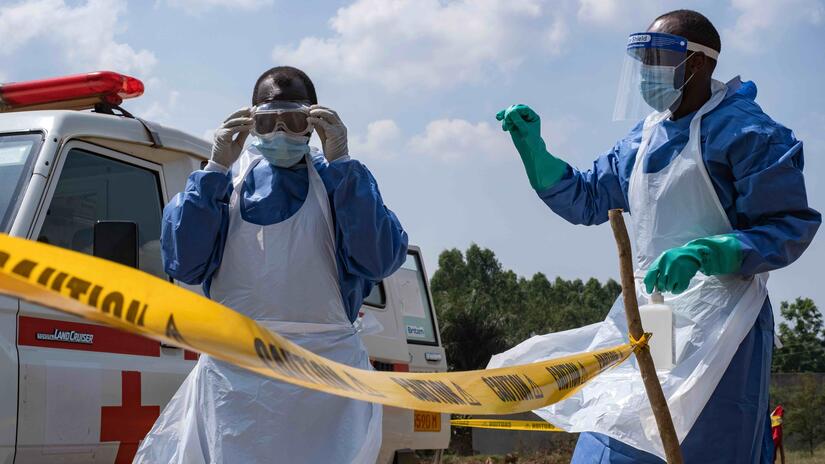
You may now travel to all parts of Uganda without fear of Ebola.
The World Health Organization reported that Uganda had declared the end of the disease outbreak, less than three months after the virus was confirmed in the capital, Kampala.
During this outbreak, 14 cases were reported (12 confirmed and two probable, not confirmed through laboratory tests).
Four deaths occurred – two confirmed and two probable – as 10 people recovered from the infection.
A total of 534 people were identified as having been in contact with the confirmed and probable cases and were closely monitored. The last confirmed patient was discharged on March 15, triggering the 42-day countdown to officially declare the end of the outbreak, in line with WHO guidelines.
Kenya has never reported an outbreak but remains alert due to frequent outbreaks in Uganda, Rwanda, Burundi and the DR Congo.
This was Uganda’s second outbreak in less than three years, confirmed on January 30.
The country’s long-standing experience in managing outbreaks enabled a fast, coordinated and effective response, WHO said.
Uganda’s Ministry of Health activated national coordination structures, deployed rapid response teams, strengthened surveillance systems and established treatment units.
“Border health measures, particularly in Kampala and at points of entry, were reinforced to prevent cross-border transmission,” WHO said in a statement.
“This outbreak challenged us in new ways. It touched both urban and rural communities across the country and unfolded against the backdrop of significant global funding constraints,” said Dr Chikwe Ihekweazu, acting WHO regional director for Africa.
“The response demonstrated Uganda’s long-standing leadership in tackling public health emergencies. As WHO, we are extremely proud to have supported these efforts every step of the way.”
The Ebola strain that has been contained in Uganda is of the Sudan virus disease (SVD) subtype. This strain is a severe, often fatal illness affecting humans and other primates.
In past outbreaks, SVD killed four in 10 of the people infected.
Despite the absence of licensed countermeasures against this species of Ebola, candidate vaccines are in various phases of clinical trials.
Within four days of the government's declaration of the outbreak, a randomised clinical trial for vaccine safety and efficacy using the ring vaccination approach was launched.
In addition, the administration of Remdesivir treatment under the Monitored Emergency Use of Unregistered and Experimental Interventions (MEURI) protocol was initiated.
“Uganda’s leadership and resilience were crucial in containing this outbreak,” said Dr Kasonde Mwinga, WHO representative in Uganda.
“From day one, WHO worked hand-in-hand with the Ministry of Health, deploying expertise, providing essential supplies and ensuring every suspected case was investigated. The people of Uganda have shown extraordinary resolve.”
Although the outbreak is over, Uganda’s Health ministry will continue investing in surveillance, survivor care and preparedness, the statement said.







![[PHOTOS] Gachagua warm reception in Nyandarua](/_next/image?url=https%3A%2F%2Fcdn.radioafrica.digital%2Fimage%2F2025%2F04%2Fc2a8c64d-5577-4768-a0ac-513c8876c288.jpeg&w=3840&q=100)


